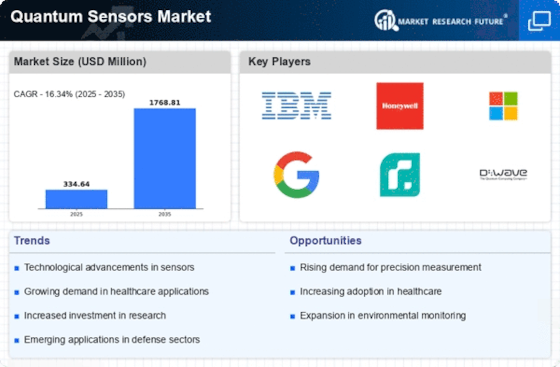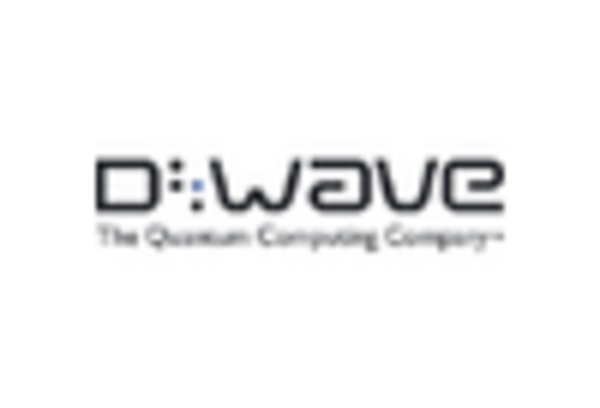Market Trends
Key Emerging Trends in the Quantum Sensors Market
Quantum Technology in Healthcare:
Quantum technology is poised to revolutionize healthcare, medicine, and biological research, ushering in a new era of precision and accuracy. Medical researchers and scientists are increasingly leveraging quantum-based data obtained through technologies such as quantum cryptography, quantum computing, and quantum entanglement to enhance techniques for storing and safeguarding healthcare databases, patient treatment, and diagnostics.
Applications at Atomic and Sub-Atomic Levels:
Operating at the cellular level, particularly at the atomic and sub-atomic levels, quantum technology offers highly accurate diagnostic results. Applications at these levels provide unprecedented precision, aiding healthcare service providers and improving patient care. Quantum cryptology and quantum cryptography, utilizing light particles (photons), play a crucial role in data security and protection, ensuring secure transmission of medical data. The stability and prevention of decoding in the quantum state make these techniques highly reliable and efficient for various healthcare applications.
Magnetic Resonance Imaging (MRI) and Quantum Properties:
Quantum properties are integral to magnetic resonance imaging (MRI), a widely used diagnostic tool. Quantum technology enhances the understanding of the patient's body at the atomic and sub-atomic levels, providing reliable and accurate data. High-quality images generated through these techniques enable healthcare providers to identify biomarkers or chemicals associated with neurological disorders and cancers.
Initiatives and Investments in Quantum Technology:
The UK government's formation of Qymru, a quantum technology network in Wales, signifies the commitment to contribute significantly to quantum technology. Quantum technology comprises computing, communication, imaging, and sensors, with quantum sensors anticipated to bring revolutionary transformations across various industry verticals, including automotive, transportation and logistics, and healthcare.
European Region's Investment Plans:
In the European region, plans to increase investments in quantum technology are underway. For example, the University of Birmingham has invested approximately USD 103 million (80 million pounds) in developing the UK Quantum Technology Hub for sensors and metrology. This investment aims to facilitate the use of quantum technology by vendors to create next-generation sensors for magnetic fields, rotation, terahertz (THz) radiation, quantum light, time, and gravity sensors, catering to diverse end-use applications.
As quantum technology continues to advance, its applications in healthcare and other industries are poised to redefine precision, data security, and diagnostic capabilities, offering transformative benefits and shaping the future of technology.

















Leave a Comment